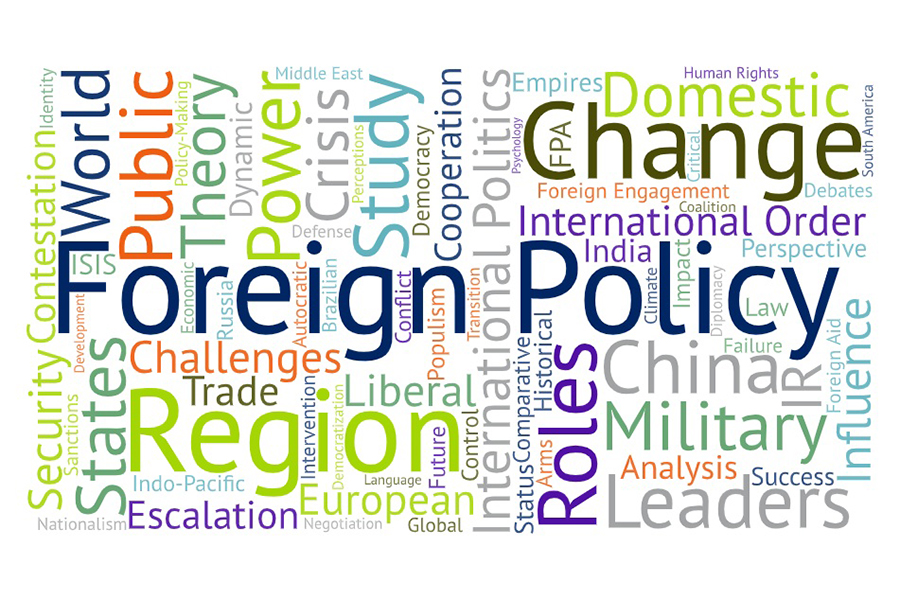
Published :
Updated :

Bangladesh's foreign policy is increasingly defined by the challenge of navigating great-power rivalry while managing domestic political pressures, analysts said at a major policy forum on Sunday.
They argued that Dhaka's engagement with India, China, and the United States reflects not a single alignment but a constantly shifting attempt to balance strategic demands with internal political needs.
These observations were shared during a session titled "Dancing with Giants: The Art of Small-State Survival", organised by the Centre for Governance Studies (CGS) as part of the three-day Bay of Bengal Conversation 2025 in Dhaka.
Speakers noted that since 2014, the ruling Awami League has strengthened ties with Beijing while maintaining close political and security cooperation with New Delhi, creating a layered, sometimes contradictory, foreign policy posture.
This complexity, they said, has become more pronounced as Bangladesh confronts sensitive issues such as the Rohingya crisis, the Teesta water dispute, and growing Western scrutiny over governance and democracy.
Against this backdrop, experts emphasised that Bangladesh must adopt a more coherent and interest-driven approach to preserve autonomy and credibility in an increasingly polarised global order.
The morning session on the second day featured a keynote by Parvez Karim Abbasi, Executive Director of CGS, who said Bangladesh's handling of the Rohingya crisis was heavily influenced by domestic political calculations ahead of the 2018 national election.
"Bangladesh's response to the Rohingya crisis illustrates how domestic politics can drive foreign policy," Abbasi said, noting that since August 2017 more than a million Rohingyas have fled Myanmar, forming one of the world's largest refugee populations.
With public sympathy high and opposition participation expected, the government internationalised the issue to bolster its legitimacy.
However, after the Awami League returned to power, Dhaka gradually retreated from Western-backed multilateral initiatives and instead leaned on the "good offices" of China and India, a shift Abbasi described as moving from balancing to bandwagoning.
The outcome, he added, was a stalled repatriation process and mounting criticism over ineffective diplomacy.
On the Teesta water dispute, Abbasi said Bangladesh initially hedged between Chinese and Indian proposals but eventually aligned with New Delhi, particularly after the 2024 election.
That reversal, he argued, halted progress, provoked domestic backlash, and signalled Dhaka's political dependence on India.
Turning to trade dynamics, he highlighted the structural imbalance in which Bangladesh exports overwhelmingly to Western markets while relying on China and India for most of its imports.
Pressure from RMG exporters - wary of sanctions and supply chain disruptions - pushed the government towards a neutral and pragmatic stance.
Speakers further observed that following the controversial elections of 2014, 2018, and 2024, Bangladesh has become increasingly reliant on India, China, and Russia, while ties with the US-led West have deteriorated over concerns about human rights and democratic governance.
The session was moderated by David Patrician of RTL Nord, Germany, and included participants from India, Nepal, Malaysia, Australia, and Germany.
Participants stressed that small South Asian states are navigating great-power rivalries through diplomacy, strategic delay, and tactical flexibility.
"For small states, collective action is crucial. You cannot negotiate with giants without proper preparation. Foreign policy has always been 'friendship to all, malice to none,' but for small states, it may now be 'interest in everybody, love to none.' Surrounded by giants, we should not think and act like dwarfs. Together, we can be a force," said Selim Jahan, Professorial Fellow at the BRAC Institute for Governance and Development.
jahid.rn@gmail.com


 For all latest news, follow The Financial Express Google News channel.
For all latest news, follow The Financial Express Google News channel.